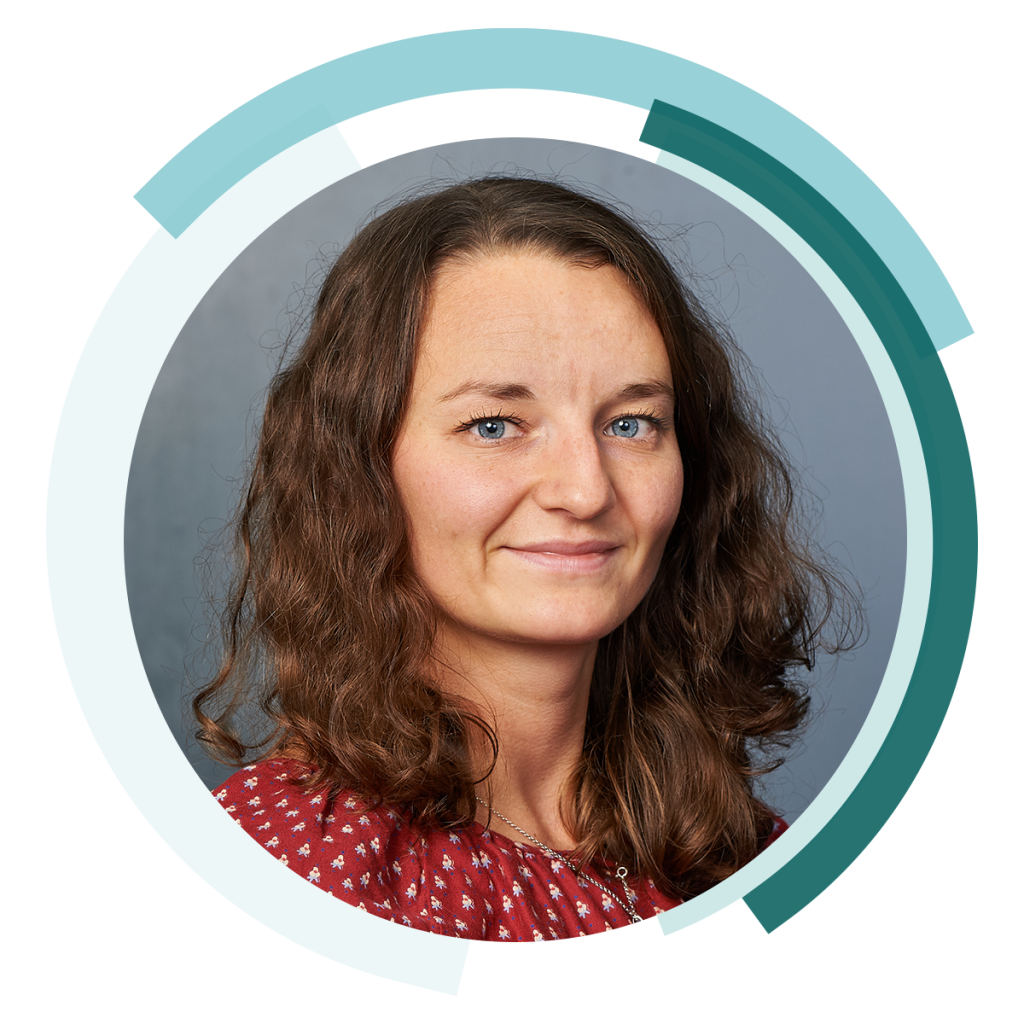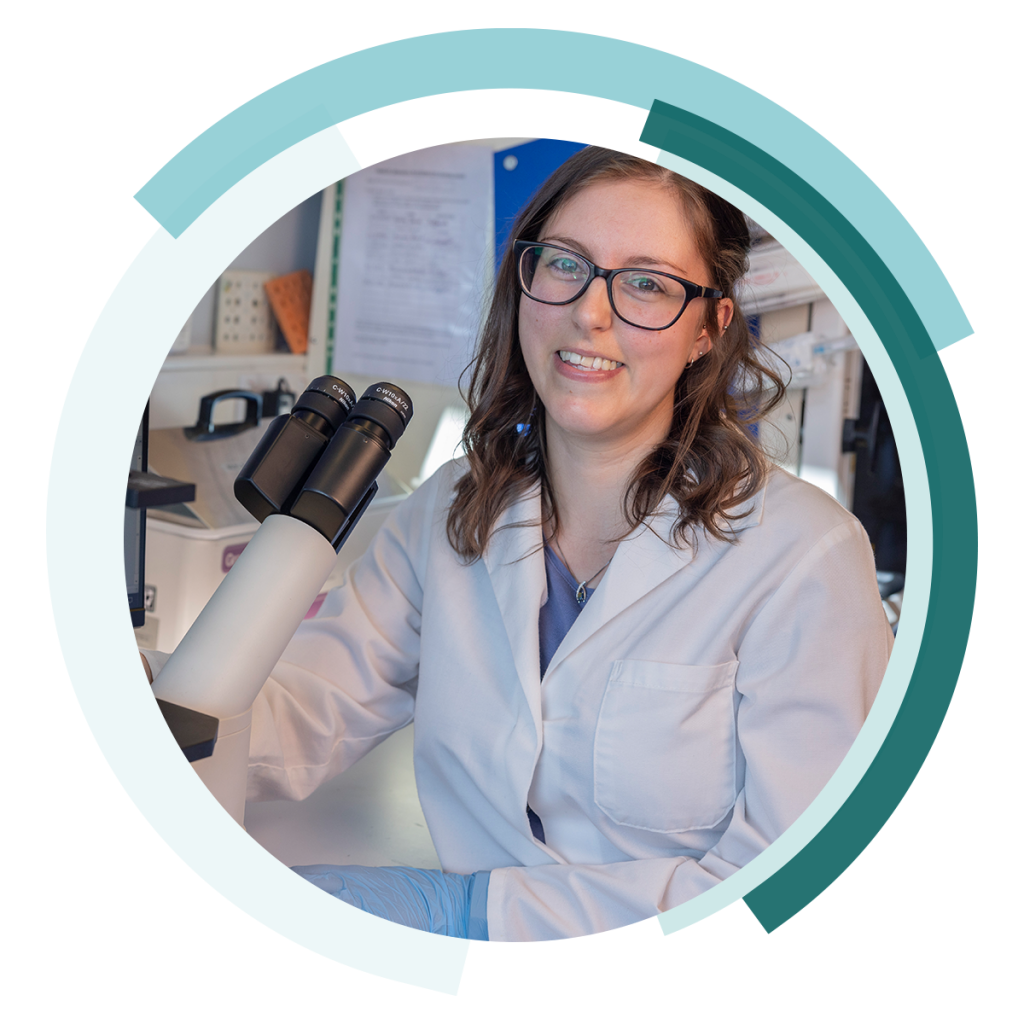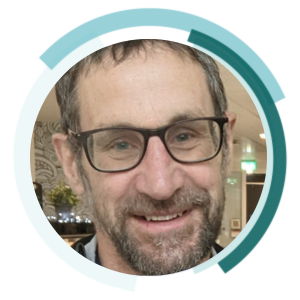Our researchers
The WCRC supports research aligned with the six CReSt themes, across the spectrum from pre-clinical to clinical research.

Dr Kevin Norris
Dr Norris’s research is focussed on telomere length dynamics, specifically in utilising telomere length as a prognostic marker for patient outcome in numerous cancers including chronic lymphocytic leukemia (CLL), breast cancer and multiple myeloma. His previous work has also shown the ability of telomere length to predict response to treatment in CLL and in the diagnosis of telomere biology disorders.

Dr Grace McCutchan
Dr McCutchan leads and supports projects about the behavioural aspects of cancer screening, prevention and early detection, with a particular focus on reducing socioeconomic inequalities in cancer. She applies behavioural science methods to evaluate acceptability, uptake and impact of new population prevention and diagnosis innovations.

Dr Stephanie Burnell
Dr Burnell uses a model system called organoids, which she develops from tumour tissue donated by patients, to study the interaction between colorectal cancer and the immune system.

Dr Daniella Holland-Hart
Dr Holland-Hart’s research involves exploring patient experiences of oesophageal cancer and how to encourage people from lower-socio-economic communities to attend lung cancer screening. Key work involves systematic reviews of the evidence, qualitative work with patients and NHS clinicians, and managing and delivering the day-to-day research activity.

Dr Jaya Lakshmi Vangara
Dr Lakshmi Vangara’s research focuses on “cancer models for preclinical potential of precision virotherapies” in VITAL (Viral Immunotherapies and Advanced therapeutics Laboratory) team at Cardiff University. Her project is focusing on developing virotherapies and assess their efficacy in a range of cancer types.

Dr Mathew Clement
Dr Clement is a Neuroimmunologist that combines advanced neurology and immunology research techniques together. His research focusses on the study of brain cancer, specialising in Glioblastoma (GBM) research.

Dr Michelle Edwards
Dr Edwards’ research is focused on patient’s experiences of cancer treatment when cancer is advanced. She has been working on a review of decision and communication support for patients and research to develop an intervention to support patients understand their options and make informed decisions.

Dr Kate Liddiard
Dr Liddiard’s research explores the causes and consequences of telomere dysfunction and recombination within the evolving cancer genome. The ambition is to determine tumour-initiating events and potential diagnostic biomarkers through the use of complementary sequencing approaches characterising telomere interactions during malignant transformation.

Dr Carly Bliss
Dr Bliss is a Lecturer in Cancer Immunology at Cardiff University, where she develops pre-clinical cancer therapies that utilise adenoviruses. This research includes a novel approach to harness and redirect antiviral T cells against cancer, in addition to cancer vaccine strategies that deploy novel vectors based on rare adenovirus serotypes to prime anti-tumour immune responses.

Dr Namrata Rastogi
Dr Rastogi is a Research fellow in European Cancer Stem Cell Research Institute, School of Biosciences, Cardiff University. Her current research focus is on malignant haematoppoiesis and acute myeloid leukaemia. She uses normal haematopoietic stem and progenitor cells and patient samples to study the role of transcription factors and epigenetic regulators in AML and how these can be used for targeted therapy in AML.

Dr Andrew Pierce
Dr Pierce is based within the Northwest Cancer Research Institute at Bangor University. His work has focused on finding disrupted pathways in Myeloproliferative neoplasms with a special interest in repurposing drugs from other morbidities to provide a cure rather than the management of these diseases.

Dr Kez Cleal
Kez’s research focuses on characterising and understanding the genetic changes that occur in cancer cells at a structural level. His team uses advanced computational techniques to analyse large amounts of genomic data from cancer patients, and aim to identify patterns of rearrangement that may be useful for diagnostic and prognostic purposes, and potentially identify treatment pathways.

Dr James Powell
Dr Powell is a neuro-oncologist based at Velindre Cancer Centre and treats patients with brain tumours with radiotherapy and systemic therapies such as chemotherapy. He is involved in several clinical trials assessing novel treatments for brain tumours. His research focuses on brain tumours, including Glioblastoma Multiforme, and he has led clinical collaborations with the Cardiff University Brain Research Imaging Centre (CUBRIC) studying the role of advanced MRI scanning techniques in patients with brain tumours.

Dr Ashley Poon-King
Dr Ashley Poon-King is a clinical oncology registrar in South Wales. She is completing a clinical research fellowship in radiotherapy, genomics and immunology. Her current research investigates telomere length and function in the tumour DNA in patients with head and neck and lung cancer and explores its relationship with clinical outcomes. Her research also examines sequential leucocyte telomere dynamics in the patients undergoing definitive or adjuvant high dose radiotherapy for head and neck cancer.

Dr Arron Lacey
Dr Arron Lacey is a Senior Lecturer in Cancer Bioinformatics and Data Science focussing on Population Health at the SAIL Databank and cancer genomics in the Reproductive Biology and Gynaecological Oncology Group at Swansea University. His overarching research focus is to help bridge cancer genomics and population health at scale and he is working on technological and strategy solutions to integrate multi-modal data (imaging, genetic testing via AWMGS) into a Cancer National Data Resource at the SAIL Databank.

Dr Agisilaos Zerdelis
Dr Zerdelis is a haematology specialty registrar in South Wales and a research fellow in early phase cancer trials. He is doing laboratory research in the field of acute myeloid leukaemia with a particular interest in using myeloid blast differentiation as a new strategy for leukaemia treatment

Dr Kate Milward
Dr Milward is a post-doctoral researcher in the VITAL (Viral ImmunoTherapies and Advanced therapeutics Laboratory) team at Cardiff University. Her research seeks to tap into the wealth of scientific knowledge developed in the fields of vaccine and virotherapy research and apply it to the treatment of cancer.

Dr Laura Baker
Dr Baker is a Research Officer and Data Scientist based at Swansea University, focused on population health using national scale data available within the SAIL Databank. Her research aims to showcase the opportunities available using routinely collected Welsh cancer data sources, providing insights into cancer services and outcomes for patients in Wales.

Dr Alex Gibbs
Alex Gibbs is a CReSt core bioinformatician with a background in cancer research, specifically skin cancer. He also has experience in RNA sequencing and single cell RNA sequencing bioinformatics analyses. His current role is to support all cancer researchers in wales with their bioinformatics needs, helping them to upskill and acquire the expertise they need to analyse their data. This is delivered through the signposting of researchers to the relevant learning pages and resources, or through teaching and tutorials.

Dr Garan Jones
Dr Garan Jones started his post as a CReST Research Fellow at the beginning of January 2024. His remit is fairly board and includes developing innovative approaches to investigating cancer, focusing on neuroendocrine tumours, and bringing in new sources of funding. Dr Jones’ current research interests focus on long-read sequencing and the dysregulation of splicing in tumours.

Dr Timothy Stone
Dr Timothy Stone is a CReST Research Fellow who has recently completed and published a research project in epigenetic cancer diagnostics at UCL. He has also worked at the MRC Centre for Neuropsychiatric Genetics in Cardiff. His current role encompasses a wide array of opportunities, primarily centred on fostering collaborations and utilising his expertise to bridge gaps in cancer research in Cardiff.